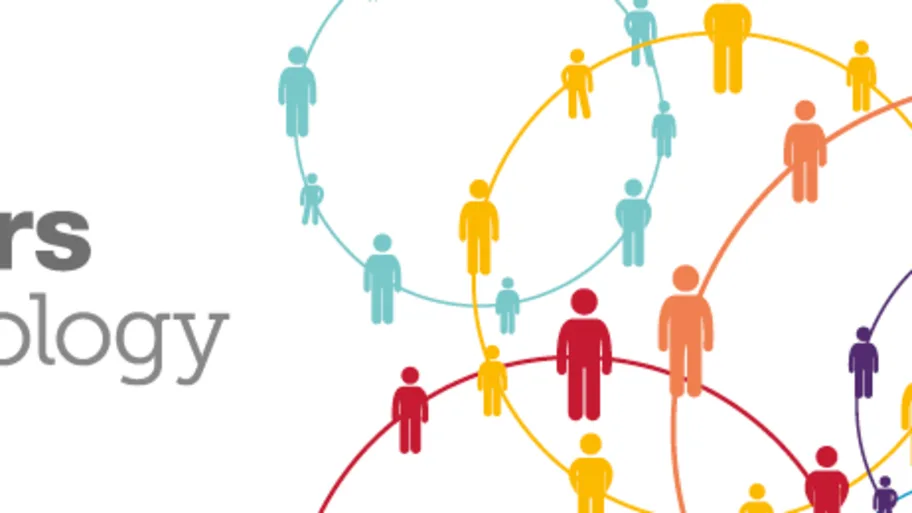
- Science News
- Frontiers news
- “In each individual a dance occurs between environment and biology – social scientists shouldn’t be afraid to acknowledge that.”
“In each individual a dance occurs between environment and biology – social scientists shouldn’t be afraid to acknowledge that.”

Image: pixabay
Interview with Rosemary Hopcroft, Specialty Chief Editor of the Evolutionary Sociology and Biosociology section of Frontiers in Sociology
— By Radhaika Kapur
Ever since the mid-20th century misuse of eugenics theory, there has been great reticence regarding the use of biological data within the social sciences. However, biologically informed research is imperative to fully understand how the individual exists within their social group.
It is this viewpoint that Professor Rosemary Hopcroft, Specialty Chief Editor of the Evolutionary Sociology and Biosociology section of Frontiers in Sociology, is working to develop and defend in her research. We discussed this and more with her in this interview.
Your recent work has been on topics such as connecting evolutionary theories with educational outcomes as well as assessing how WEIRD Donald Trump is. What are you currently researching and what might it tell us about contemporary society?

I have a longstanding focus looking into evolutionary approaches to sociological questions and how evolutionary ideas can inform what we do as sociologists. Demographers (who are usually trained as sociologists) have long been interested in fertility rate, a topic which evolutionary theory of course has a lot to say about.
Beginning in 2006 I started looking at sex differences in fertility. These can in fact be very different, which is interesting. In the past, censuses and demographers have generally focused on female fertility rates. Female fertility is very easy to measure through number of babies born. Governments are principally concerned with population size change (indicative through babies born) and hence good data does not exist regarding male fertility.
In 2006 I located good data on US male fertility. Examining the differences, it was intriguing to see how fertility rate correlated with status, education and personal income. We have typically thought that high-status families have fewer children than lower status families — which is broadly true. But it is interesting if you look at male and female fertility separately. In the US at least, when you consider male personal income, this is positively associated with number of children, whereas for women higher income is negatively associated with number of children. In the US, education is negatively associated with number of children for both genders. It is a little bit different in Scandinavian countries where both education and income are positively associated with number of children for men only.
My current research is using newly released data from the US census — this is a huge sample. I plan to look at household and personal income and disentangle these effects on male and female fertility.
In essence, my work focuses on traditional sociological concerns, demographic concerns, but brings in ideas from evolution — particularly that male and females evolved to follow somewhat different reproductive strategies. Thus far that is precisely what I am finding.
In your Specialty Grand Challenge you mentioned 3 major challenges that Evolutionary Sociology as a field faces. Do these challenges remain as salient?
Yes — firstly, the moral implications of a biologically based social science are still a cause for concern for most sociologists. There is a knee jerk reaction against any sort of biology within sociology. The 20th century saw extremely terrible things, however this was a misuse of biology. Sociologists are still very concerned about asking questions in this realm. Saying that, there is increasing involvement in biosociology with a number of sociologists looking at genetic components of social behaviors.
In saying we are biological creatures, this highlights the fact that we are all, on the whole, universally the same. This, in my mind, promotes human morality and is the basis of most moral codes.
Secondly, there continues to be confusion about levels of analysis. To say that individuals evolved doesn’t necessarily mean anything about groups and emergent processes at the group level. Some of the concern regarding the moral implications of incorporating biology is because some people do not appreciate all these differences. For instance, I think that many people consider the inclusion of evolutionary ideas as an endorsement of a crude, group selectionist idea — that some groups are better than others. This is the basis of social Darwinism and is incorrect.
Finally, addressing the meaning of “causality” in the social sciences is always tricky. We find correlations and not causality as such in the social sciences. This has to do with the fact that there are different levels of analysis. A lot of things have a determining role: your environment, your individual experiences and your genes. If you say that biology has a role, this does not detract from that fact that we have free will and are influenced by our environment. There is a dance between the environment and an individual’s biology that we need to appreciate.
Why do you think that Open Access publishing is crucial?
I think publishing research in a manner that is accessible to all is democratic, transparent and right. It means anyone anywhere can have access to the world’s best research — all they need is an internet connection.
Finally, what is your vision for your section in 2018?
By its very nature Evolutionary Sociology and Biosociology is an interdisciplinary field. It brings in theory and methods from the life sciences into sociology. Right now, there are researchers in other disciplines such as psychology and anthropology who are working on similar issues to those in my field. During the upcoming year I would like to encourage that by having the journal try to break down barriers between sociology and other disciplines. There should be a continuous cross-exchange of ideas.
If you are interested in getting involved in the journal section Evolutionary Sociology and Biosociology please email: sociology@frontiersin.org






